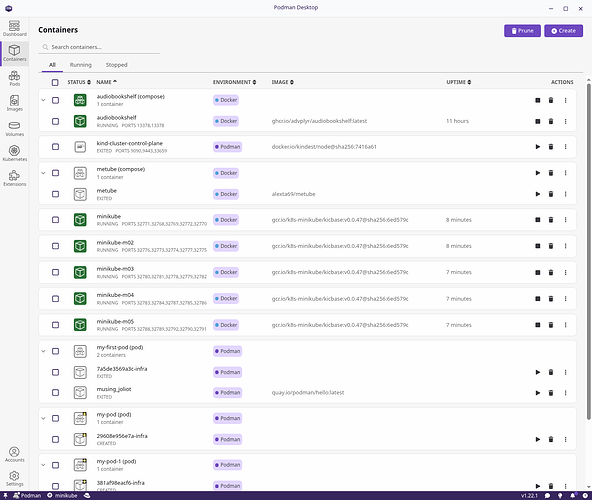This article is inspired by a LinuxCommunity.io forum thread (thanks to users @tmick and @shybry747 for the feedback). Let’s walk through what Podman is and how to use it as a Docker alternative on Linux. Expect a straightforward guide on installing Podman, running containers with it, and understanding the basics. Containers have become the go-to… continue reading.
This article is inspired by a LinuxCommunity.io forum thread (thanks to users @tmick and @shybry747 for the feedback). Let’s walk through what Podman is and how to use it as a Docker alternative on Linux. Expect a straightforward guide on installing Podman, running containers with it, and understanding the basics. Containers have become the go-to… continue reading.
Another excellent write up, thank you for taking the time to write this up!
I have a pretty solid (read practiced) setup with Docker and Docker Compose at home. It’s very familiar to me when I want self-host a new app, and therefore it’s very simple to try something out.
With that being said, Podman seems great and I will definitely be giving it a try to see if I can gain any advantages with my current setup!
Personally, for now I will stick with Docker as well. To me it seems like the Ubuntu of containers: familiar, well-supported, and everything just works. But I’m definitely keeping an eye on Podman!
So Docker doesn’t work with Debian Testing (Forky) so I’m kicking the tires on podman for now. I’m assuming I can do something like podman git pull to install something, I’m checking the Podman docs as you read this.
At the moment, I am working a lot with Docker and Kubernetes. There are so many ways to create, manage and orchestrate containers.
For podman there is also a nice TUI application:
Excellent write up @hydn. Since I am just starting out on containerization it makes me more lean to Podman for sure.
You can use both at any time if you want.
If you want a nice GUI app, you can try Podamn Desktop (also as flatpak)
Freudian slip, Toadie?
While the article alludes to replacing Docker with Podman, it could benefit from an explanation of what to expect if e.g. you were to remove Docker then install Podman.
Would you then expect to still have your Docker containers on your system? Are there other considerations?
![]()
![]()
![]()
No, that was actually a mistake.
I’m laughing myself silly right now. ![]()
So Docker doesn’t play well with Debian testing, So I tried Podman. I can see the attraction, but I don’t have a use for it . There’s just not a program I’d need to put into a container at the moment. I’d try using it to make a container for an OS but I wasn’t able to figure that one out (I want to make my own not use an existing one). Maybe it was a short between the keyboard and the operator or a ID10.t error. From What I can tell Podman and Docker are interchangeable (what runs on Docker runs on PodMan, just use the Docker docs & goodies list) Podman does have it’s own list of Goodies but alot of them just send you to the Docker installer. So @AnthonyRKing the experience is what you make of it, but it was the same to me.
